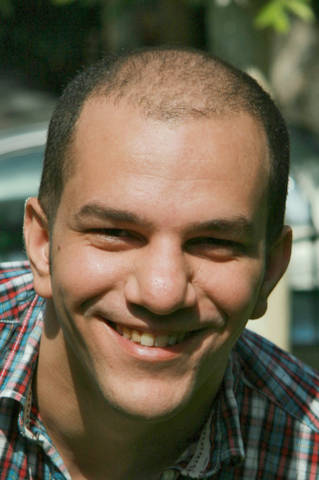The Jasmine Revolution will flower across the region
By Osama Diab
Tunisia's revolution will spread the scent of its jasmine to oppressed nations all over the region
1 February 2011
Analysts and experts never cease to analyse the sociopolitical nature of the Arab world. Especially since 9/11, most have set their expectations low and been cynical about any social or political change taking place in the land of strongmen and dictatorial power. We, Middle Easterners, have been accused of being passive, unable to mobilise, and unwilling to fight for our rights.
After blowing all over the globe, the long-awaited winds of political change have decided to finally visit the Middle East. North African countries have in the past few years seen a large number of riots, sit-ins, strikes and demonstrations to protest low wages and the high cost of living, but a ruthless police state has always stopped these outcries of anger and frustration from developing into a popular revolution ousting a regime from power. Tunisia's Jasmine revolution on 14 January 2011 marked the first successful attempt to overthrow a dictator by a popular revolution. And it took place in a country that was thought to be one of the most stable in a region where autocracy was believed to be deep-rooted and nearly impossible to abolish.
The people of Tunisia proved us all wrong by forcing dictator Zine el-Abidine Ben Ali out in a way unprecedented in the Arab world. The only way an Arab dictator would take his suitcase and escape his own country used to be through a military coup, until a few days ago, thanks to the people of Tunisia.
But what does that mean to neighboring countries like Morocco, Algeria, Libya and Egypt? No one can claim it will have no impact, because it already has. At least four people have self-immolated in Egypt out of desperation, which is how it all started in Tunisia when Mohamed Bouazizi burnt himself to death sparking non-stop riots for three weeks to protest against deteriorating living conditions and high unemployment. Riots have erupted in Yemen, Jordan, Morocco, Egypt and Algeria since Tunisia's uprising.
Democracy, like authoritarianism, is contagious. It is hard to find a standalone democracy surrounded by dictatorships, or vice versa. In the Autumn of Nations in 1989, a few Eastern European countries overthrew their communist regimes, which led to the collapse of the Soviet Union and the collapse of many communist regimes in the region after that. Communism was not hurt just in Eastern Europe, but in many countries all over the world following the Soviet Union's collapse. Another major ripple effect was Latin America's serious steps towards democracy over the past three decades in a fashion rarely seen in the developing world. If real democracy takes hold in Tunisia, it will increase the chances of it happening elsewhere close by.
However, it's hard to predict the extent of the effect on neighbouring countries because, even though they belong to the same region and share a lot in common, every country still has a different economic, social and political nature. Copying and pasting a Tunisian scenario in Egypt, Libya, Algeria or Morocco is unlikely to happen. However, North Africa now seems well prepared and more ready than ever to dispose of its authoritarian regimes and gradually start a new era of people's empowerment due to a steady increase of dissidence and a growing political momentum in some of these countries, in reaction to dire economic situations, high levels of corruption and worsening human rights conditions.
Even though Tunisia's revolution might not be replicated, it will still bring many benefits to the people of neighbouring countries.
Firstly, it acts as a clear warning message to authoritarian regimes that over-relying on security apparatuses to remain in power with no popular support is unsustainable. It also conveys the message that the economic and political rights of the masses must be dealt with, and cannot be silenced by a heavy hand.
Secondly, it ends the myth that Islamists are the only groups capable of toppling regimes in this region – an idea established after the Iranian revolution and the assassination of Egyptian president Anwar el-Sadat in the late 1970s and the early 1980s, one that has been used by secular dictatorships in the North African region as a scare tactic to win the West's support. The idea is simple: imposed secular authoritarianism has been for long preferred over an elected Islamic regime by the world's superpowers. Former US Secretary of State Condoleezza Rice once stated that the United States has long favoured stability over democracy in the Middle East and ended up achieving neither.
It also implies that the way for a government to gain legitimacy is from its own people rather than by allying with superpowers, as they all turned their back on Ben Ali after he was overthrown by his people. France, his biggest former ally, has refused to grant him asylum. Many regimes relied solely on their alliance with Western superpowers at the expense of their own people. This might no longer be a good bargain for Arab dictators.
Whether or not we will see the fall of one North African regime after the other is hard to predict and not guaranteed, but the good news is that Tunisia's revolution will spread the scent of its jasmine to oppressed nations all over the region, inspiring and empowering people in their fight against unjust regimes.
This article was first published by Worldpress.org on 31 January 2011. Republished here with the author's consent. ©Osama Diab.


